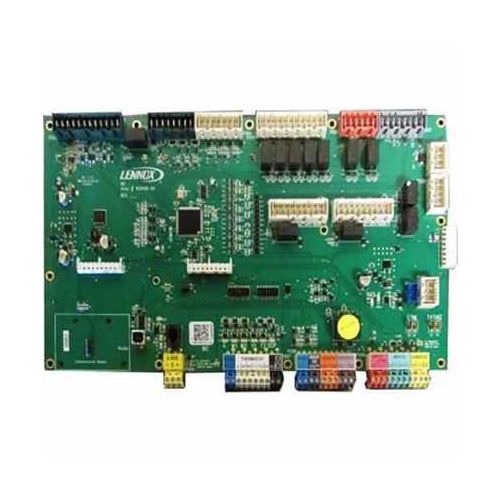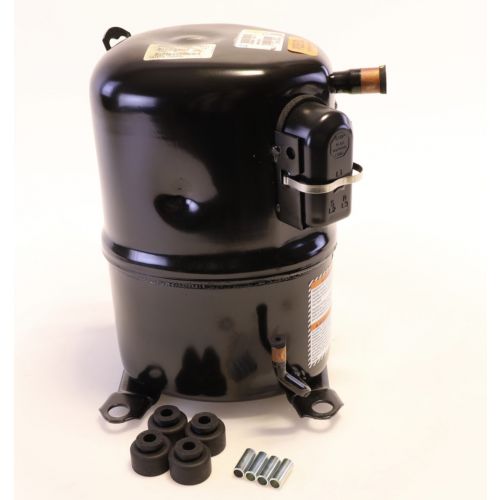A step-by-step guide on How to replace AC compressor
Are you sweltering in the heat due to a malfunctioning AC system? AC compressor not turning on, causing a lack of cooling in the entire HVAC system. The AC compressor, a vital component of your air conditioning system, plays a crucial role in keeping you cool. When it starts to fail, you may notice a decline in cooling performance. In this comprehensive guide, we'll walk you through the step-by-step process of replacing your AC unit compressor replacement process. From understanding the significance of this component to recognizing the telltale signs of a faulty unit, we've got you covered.
Signs that you should replace your AC compressor
Before we delve & find out how to replace AC compressor, let us explore the signs that indicate you should replace it. Recognizing the signs that signal the need for HVAC compressor replacement is crucial for maintaining a comfortable and efficient cooling system. Here are some key warning signs to be aware of:
AC blowing hot air: If your AC system is no longer providing cool air but instead blowing warm or hot air, it's a strong indicator of HVAC compressor issues.
AC is not cold enough: If the air coming from your AC isn't as cold as it used to be, the compressor may be struggling to maintain the desired temperature.
Intermittent cooling: Inconsistent cooling performance, where the AC works well at times and poorly at others, can signal compressor problems.
Refrigerant is leaking: Noticeable refrigerant leaks around the compressor or elsewhere in the AC system can lead to compressor failure.
Strong smell of coolant gas: An unusual odor resembling coolant gas could indicate a compressor issue and should not be ignored.
Loud noises from the compressor: Unusual or excessively loud noises originating from the compressor can suggest impending failure.
Compressor bearing failure: If the bearings within the compressor are failing, you might hear grinding or squealing noises.
AC system is not turning on: If your AC system fails to turn on altogether, it could be due to a malfunctioning compressor.
Any of these signs may indicate a problem with the Ac unit compressor. After proper diagnosis and if you are certain that the compressor is indeed malfunctioning, proceed to the next segment to learn how to remove it and install a new one.
PartsHnC is your one stop destination for all your HVAC needs. Our inventory includes everything from AC compressor, blower motor to circuit boards, capacitors from well-named manufactures. Also, we offer a wide range of HVAC parts at competitive pricing with same day shipping.
Before we delve into the steps have a look at the video:
Gathering the tools and materials required to replace ac compressor
When it comes to replace air conditioner compressor, having the right tools and materials is essential for a successful job. Here's a list of what you might need:
-
Wrenches and sockets: These are crucial for removing and attaching bolts during the process.
-
Screwdrivers: You'll need various types of screwdrivers for different HVAC compressor parts of the replacement.
-
Pliers: These come in handy for removing clips or clamps holding components in place.
-
A/C manifold gauge set: This tool allows you to monitor the pressure of the A/C system, ensuring it operates correctly.
-
Refrigerant recovery machine: Safely removes existing refrigerant from the system, complying with environmental regulations.
-
Vacuum pump: Used to remove any air and moisture from the system, ensuring efficient cooling.
-
Safety glasses and gloves: Protect your hands and eyes while working on your AC system. Safety first!
Safety precautions to take before replacing ac compressor
Before embarking on the AC unit compressor replacement journey, it's crucial to prioritize safety. Here are some vital precautions to keep in mind:
Protective Gear: Always wear safety glasses and gloves. These will shield you from potential injuries and chemical exposure.
Environmental Responsibility: Never release refrigerant into the atmosphere. Not only is it harmful to the environment, but it's also illegal in many areas. Utilize a refrigerant recovery machine to safely handle and dispose of refrigerant.
Electrical Safety: Exercise caution when working with the vehicle's electrical system. Disconnect the battery before commencing work to prevent electrical shocks.
Stability Matters: Ensure your vehicle is securely parked and cannot move or roll while you're working on it. Safety stands or blocks can help stabilize it.
Follow Manufacturer's Instructions: Adhere to the manufacturer's instructions meticulously when installing the new compressor. This ensures proper AC compressor installation and optimal system operation.
Consider Professional Help: If you don't have access to a refrigerant recovery machine or a vacuum pump, consider having the system evacuated by a professional shop before initiating the repair. They can also recharge the system afterward, ensuring its proper functioning.
By prioritizing these safety precautions, you'll not only protect yourself but also contribute to a safer environment and a successful HVAC compressor replacement.
Steps to replace your AC compressor
Replacing your AC compressor is a complex but manageable task that can save you money on professional HVAC service. Here's a step-by-step guide on how to replace air conditioner compressor:
Step #1 - Loosen the Belt and Remove Mounting Bolts
Begin by loosening the belt that drives the AC compressor. Once the belt is loose, you can proceed to disconnect the lines attached to the compressor. There are mounting bolts securing the compressor to the AC system; make sure to remove these bolts as well.
Step #2 - Detach the Compressor and Handle Fluids with Care
Carefully detach the compressor from its slot. Exercise caution, as the attached lines are delicate and can be easily frayed. Be prepared for fluids that may leak from the lines, and wear gloves to protect your skin from contact with potentially harmful substances.
Step #3 - Prepare for New Compressor Installation
Before installing the new compressor for ac unit , ensure that it has the same configuration as the old unit. Check that the intake and exhaust sides have compatible refrigerant ports, and verify that the dimensions of these ports and the check belt pulley match. To make the HVAC compressor replacement process smoother, use the mounting bolts from the old compressor and add oil to the joints for proper lubrication.
Additionally, replace the old O rings with new ones during this stage. These O rings play a crucial role in sealing the high and low side lines to the compressor housing, and they can deteriorate over time due to pressure and heat.
Step #4 - Install the New Compressor
Place the new compressor into the engine bay and fastened it securely to the engine block using the mounting bolts. Install the refrigerant lines, making sure to remove the port dust covers before fixing them in place with mounting bolts. Ensure that you don't over tighten the bolts.
After attaching all the bolts, reconnect the electrical connector to the refrigerant control valve or the engagement coil. Re-install the alternator and the serpentine belt. Finally, complete the process by reattaching all the tubes and hoses that were removed, and tighten all screws, brackets, and bolts. Following the above steps will help you replace your AC compressor efficiently and restore your air conditioning unit's cooling capabilities without the need for professional assistance.
Know about how to clean an air conditioner by yourself.
Testing and Ensuring Proper Functionality of Your New AC Compressor
After AC compressor installation, it's crucial to test and ensure its proper functionality for efficient cooling. Here's how to do it:
-
Check AC Compressor Oil: Verify that the compressor contains the appropriate amount of AC compressor oil. Inadequate oil levels can affect compressor performance.
-
Inspect AC Compressor Capacitor: Ensure the capacitor, responsible for starting the compressor, is in good condition. A faulty capacitor can hinder the compressor's operation.
-
Assess AC Compressor Belt: Examine the AC compressor belt for proper tension and alignment. A loose or misaligned belt can lead to inefficiencies or damage.
-
System Pressure and Cooling: Monitor the system's pressure and cooling performance. Adequate pressure and consistent cooling are indicators of a well-functioning compressor.
-
Listen for Unusual Noises: Run the system and listen for unusual noises like grinding or squealing, which may suggest issues with the new compressor.
By meticulously checking these components and functions, you can ensure that your new AC compressor is operating optimally, ensuring your HVAC system delivers efficient and reliable cooling.
Now let us find out how much is an AC compressor replacement costs.
What is the cost to replace an ac compressor?
The cost to replace air conditioner compressor can vary depending on factors like the make and model of your vehicle, labor rates in your area, and whether you're using a new or refurbished compressor. On average, the entire process, including the price of a new compressor and labor costs, can range from $700 to $1,000. It's important to note that compressor replacement is often an expensive undertaking, but it's a critical component of your vehicle's air conditioning system. Investing in a high-quality HVAC compressor replacement can ensure that your AC functions efficiently and keeps you comfortable during hot weather.
Know more about the Replacement cost of an AC compressor.
Maintenance and troubleshooting tips for AC compressor
Maintaining and troubleshooting your AC compressor is essential for keeping your air conditioning system running smoothly. Here are some tips:
-
Regular Cleaning: Keep the compressor clean from dirt and debris to ensure proper airflow.
-
Check Refrigerant Levels: Insufficient refrigerant can strain the compressor. Ensure it's at the correct level.
-
Inspect Electrical Connections: Loose or corroded connections can lead to compressor issues. Regularly check and tighten them.
-
Change Air Filters: Clogged filters reduce airflow, impacting the compressor's efficiency.
-
Listen for Unusual Noises: Uncommon sounds may signal compressor problems; address them promptly.
-
Monitor Cooling Performance: A decrease in cooling efficiency could indicate compressor trouble.
-
Schedule Professional Maintenance: Periodic professional inspections and maintenance can prevent major issues.
By following these maintenance and troubleshooting tips, you can extend your AC compressor's lifespan and enjoy uninterrupted comfort.
Mastering the process of AC unit compressor replacement is a valuable skill for maintaining a functional air conditioning system. By following the step-by-step guide for AC compressor replacement, you can tackle this task with confidence. Remember, a well-executed HVAC compressor replacement ensures efficient cooling and a comfortable environment, making it a worthwhile endeavor for any DIY enthusiast.
FAQs
What can damage an AC compressor?
Contaminants in the refrigerant and electrical issues can damage an AC compressor.
How often do AC compressors need to be replaced?
AC compressors typically need replacement every 10-15 years.
How long will a failing AC compressor last?
A failing AC compressor can last anywhere from a few weeks to several months.
What happens if you don't replace the AC compressor?
Not replacing a faulty AC compressor can lead to poor cooling and system damage.
Is an AC compressor easy to fix?
Fixing an AC compressor is complex and often requires professional expertise.
How to tell if ac compressor is bad?
Bad ac compressor symptoms include poor cooling, strange noises, and leaks.
Will a bad AC compressor affect the engine?
A bad AC compressor won't directly affect the engine but can strain it if left unrepaired.
 Loyalty Program
Loyalty Program














